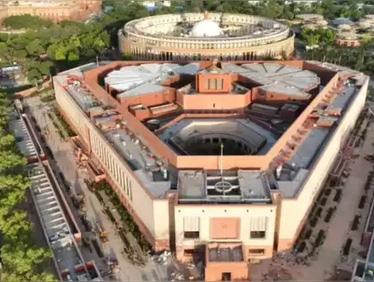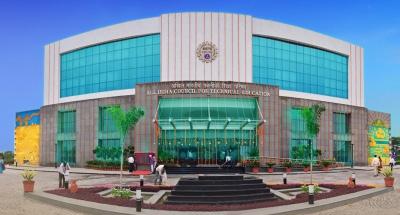
6 minute read
UP launches five DTH channels for children
New Delhi, July 29 (IANS)
Prime Minister Narendra Modi on Saturday said that with the implementation of New Education Policy (NEP), the Indian students will be able to study in their own local language which will benefit them in all-round development.
Advertisement
The Prime Minister was speaking at the inaugural event of the 2-day All India Education Convention at Pragati Maidan.
The convention is also known as Akhil Bhartiya Shiksha Samagam. It is a two-day programme which is being held on July 29 and 30.
The convention will provide a platform for academics, sector experts, and higher education and skilling institutions to share their insights in implementing the NEP 2020 policy.
PM Modi said that all developed countries use their local language but in India a person’s skill is not accepted if he is unable to speak in English language.
“Developed countries have progressed with the help of their local languages. We have projected our local language as backward which is unfortunate. People who are unable to speak in the English language are not accepted though they are talented and innovative. In the Amritkal of Independence, we have shed this practice,” the PM said.
He said that the NEP endorses equity and that he also spoke in local language at the UN.
“This will also close the shops of
He said that education policy is playing a crucial role in achieving the goals of our country.
The PM said that consultation is a must for knowledge and discussion is necessary for education.
He said that he is happy that with consultation and discussion, they were taking a leap into the future.
“Earlier, such a program was held at the newly constructed convention hall of Kashi. This time, it is happening in the newly constructed Bharat Mandapm of New Delhi. This very first program is about education here.
“I am overwhelmed by the feeling that the first program at this newly constructed auditorium is about education. From Kashi’s Rudrakash hall to this most modern Bharat Mandapm, the journey of Akhil Bhartiya Siksha Sangam has a message. The message is of togetherness and merging of ancient and modern eras,” the Prime Minister said. He said on one hand the education system was securing ancient culture and modern science, and on the other hand, they were moving fast in the field of high-tech technology and modern science.
PM said that the NEP was completing three years with today’s program.
“The intellectuals, academicians, and teachers took it as a mission.
I also visited the exhibition in the adjoining pavilion. In this exhibition, our skills and the power and achievements and new innovations in the education sector were displayed. I also interacted with the children over there. We can see children are learning through different games and education, and schooling is also being changed in a positive manner,” PM said.
He also requested people to visit the newly constructed Bharat Mandapm.
He said three years back when the NEP was introduced, at that time it had a goal to achieve.
Speaking about primary education, the PM said that to introduce a new curriculum and to bring books in the local language and to make the research eco-system stronger, the academicians played crucial roles.
“Teachers and students know that instead of 10+2, we are now focusing on 5+3+3+4 education system. The education will now start at the age of three. Recently, the Cabinet gave its permission to introduce the National Vision Foundation bill in Parliament. With the help of the National Education Policy, we are also in the process of introducing a national curriculum framework. And I was informed that the framework was even completed for foundation age (3 to 8 years) kids. We are also working for the rest,” PM said.
The PM said that the CBSE will have one curriculum in the entire country and that NCERT is in process of launching new books. He said that from class IIIrd to XII, books of around 130 subjects will be launched soon. These books will be in 22 different languages.
Indian educational institutions should be brought at par with int’l norms: Parl panel
institutes and learning centres at par with international norms so that India can emerge as a sought after destination for education".
Lucknow, July 30 (IANS) The Uttar Pradesh government has launched five direct-to-home (DTH) television channels to enhance children’s learning experience at home.
The initiative is a part of the Centre’s PM e-Vidya programme. These channels will broadcast subject-wise and class-wise educational videos for students from Classes 1 to 12. Additionally, videos on pre-primary education and others made specially for the differently abled children will be broadcast.
The channels, which were made available free of charge on DD Free Dish and Dish TV from Saturday, bring supplementary education to children’s homes in their own languages. It may be noted that the PM e-Vidya programme was launched on May 17, 2020. One of its components was the launch of DTH TV channels under the One Class-One Channel initiative. Pawan Sachan, the director of the State Council of Educational Research and Training (SCERT), has informed the District Institute for Education and Training (DIET) principals, district school inspectors, and district basic education officers about the inauguration of PM e-Vidya DTH channels.
While new videos on different subjects will be broadcast daily, their repeat telecast will run throughout the day, he said.
AICTE Chief: 600 colleges to offer UG-PG semiconductor tech courses
There are around 600 technical institutions, which will provide courses on semiconductors.
IANS: AICTE has banned the opening of new engineering colleges in India till 2024, what is the status now?
New Delhi, July 28 (IANS) While the Indian diaspora and students have achieved recognition in field of arts, sciences, engineering, technology and humanities, Indian educational institutions do not perform well in world rankings, said a report presented in the Parliament on Friday.

The Parliamentary Committee on External Affairs, in its report, suggested that the government should make concerted efforts to "improve the standard of our universities,
In the report titled "India's Soft Power and Cultural Diplomacy: Prospects & Limitations", the panel said that the country should give special focus on its cinema as an instrument of soft power and take steps to popularise it's films abroad, including regional cinema.
"The committee are of the strong view that added emphasis needs to be given to the global imprint of our cinema as an instrument of soft power while taking effective steps to celebrate and popularise our movies abroad, including regional cinema," it recommended in the report.
The panel further said that
"Indian television news may not yet have made any impact globally, the Hindi film industry, popularly known as Bollywood, has emerged as one of the most notable examples of global entertainment emanating from outside the Western world".
In view of the surge in yoga teaching and centres across the globe, the committee recommended that the AYUSH Ministry, in collaboration with the External Affairs Ministry, should constitute a Yoga Certification Board for certifying Indian yogic practices and therapies.
"Collaboration with the Indian diaspora should also be encouraged to disseminate yoga training abroad, in regions where it is not yet popular," it said further.
New Delhi, July 30 (IANS) Over 600 engineering and technical institutions across the country will soon start offering "worldclass" courses on semiconductor technology, All India Council for Technical Education (AICTE) chairman T.G. Sitharam has said. The AICTE is a national-level apex advisory body to conduct a survey on the facilities available for technical education and to promote development in the country in a coordinated and integrated manner. It comes under the Union Education Ministry and is also responsible for accrediting all postgraduate and graduate programs, under specific categories of technology. There was a moratorium on the opening of new engineering colleges in the country till 2024, which, the AICTE chief - during an exclusive conversation with IANS - said, has been revoked now.
Here are excerpts of the conversation:
IANS: What are the new courses, which the AICTE will introduce to meet the global standard?
Sitharam: We are working on new-generation courses on cutting-edge technologies such as semiconductors. We are working on it, and soon there will be more than 16,000 seats available for undergraduate, postgraduate and diploma-level courses on semiconductor technology.
Sitharam: Yes, there was a ban on the opening of new engineering colleges across India till 2024 but we have reviewed our decision and now, we have revoked the moratorium.
It means new engineering colleges can be established anywhere in the country by following the rules and regulations set by the AICTE. Even permissions for the opening of 250 new engineering colleges and technical institutions have been granted recently after the moratorium was revoked by the AICTE.

IANS: Thousands of students dropped out of higher educational institutions (HEIs), and even some suicide incidents too were reported in HEIs. Have you taken any initiative to address these student-related problems?
Sitharam: We are coming up with a 'Mentor-Mentee Programme'. Under this programme, there will be a mentor for students in every institution so that interaction beyond academics can be promoted.
To deal with their issues and stress, these mentors will discuss with students their personal issues, family issues, issues related to the institution and personal well-being. We have a policy ready on this and it will be approved in the next council meeting.








